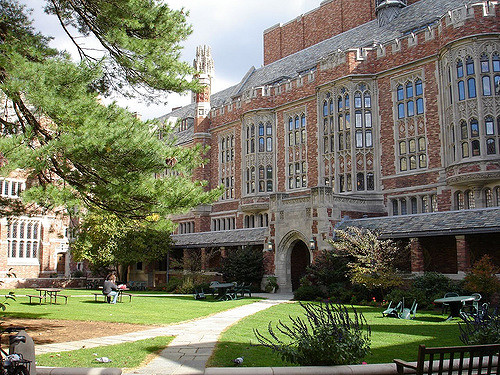
More than 20 million people tuned in to the Ford-Kavanaugh hearing on Thursday. Many sociologists provided perspectives on the hearing, outlining everything from the myths about rape to the connections (and differences) with the Anita Hill and Clarence Thomas case. In an op-ed for The Washington Post, Shamus Khan provides his take on how class privilege shaped many of Brett Kavanaugh’s actions.
In his book Privilege, Khan followed students at St. Paul’s, an elite private school in New Hampshire. He describes how elite institutions, including the ones Kavanaugh attended, like Yale, foster privilege among their predominantly upper-class student bodies. This privilege includes ideas that students are “exceptional” and that the “rules don’t really apply to them.” As Khan explains in the article,
“What makes these schools elite is that so few can attend. In the mythologies they construct, only those who are truly exceptional are admitted — precisely because they are not like everyone else…Schools often quite openly affirm the idea that, because you are better, you are not governed by the same dynamics as everyone else. They celebrate their astonishingly low acceptance rates and broadcast lists of notable alumni who have earned their places within the nation’s highest institutions, such as the Supreme Court.”
These narratives of privilege among the elite can have some pretty nasty implications. Khan cites research by economist Raj Chetty demonstrating that admission to an Ivy League school is rarely the result of educational aptitude, but rather extreme family wealth. He asserts that this class privilege, masked by notions of “exceptional qualities,” is tied to beliefs about special treatment among the elite. For example, Kavanaugh’s supporters argue that he deserves the Supreme Court nomination and accountability for actions he committed years ago doesn’t really apply to him. Khan illustrates further how this privilege also shaped Kavanaugh’s actions on Thursday:
“This collective agreement that accountability doesn’t apply to Kavanaugh (and, by extension, anybody in a similar position who was a youthful delinquent) may help explain why he seems to believe he can lie with impunity — a trend he continued Thursday, when he informed senators that he hadn’t seen the testimony of his accuser, Christine Blasey Ford, even though a committee aide told the Wall Street Journal he’d been watching.”
In short, Khan’s research demonstrates how class privilege has shaped Kavanaugh’s actions from the outset, and how this privilege is cemented by the institutions and social circles around him.

Comments